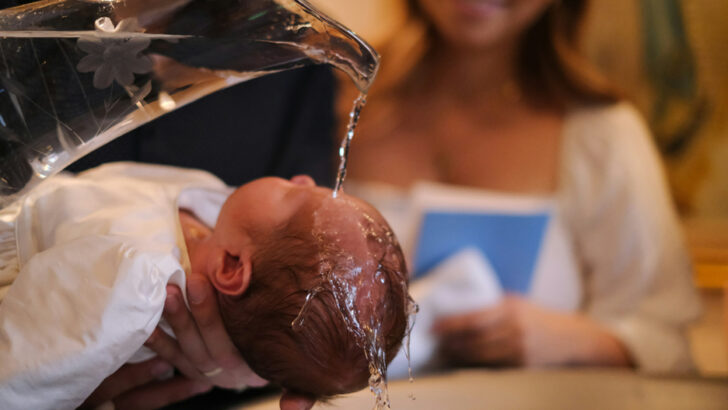Q: I’m a new mother in the middle of a divorce. I admit that I have never been a very good Catholic, but I still want my baby baptised in the hope that he will have a better relationship with God than I’ve had. My ex-husband and I share custody, and in many ways, he is a good parent, but he was raised in a very secular household and is basically an atheist. Can my son still be baptised? Or will the priest take one look at my situation and decide we don’t qualify?
A: First, I’m sorry that you are going through such difficult life circumstances. But the good news is that there is nothing in the Church’s law which would prevent your child from being baptised.
The Code of Canon Law clearly states the requirements for infant baptism – and know that in the Church’s law, an “infant” is any child under seven years of age, so all this could apply even to a child who is older than what we would colloquially consider a baby.
As we read in Canon 868, 1 of the Code: For an infant to be baptised lawfully it is required: “1. that the parents, or at least one of them, or the person who lawfully holds their place [such as the permanent legal guardian of an orphan] give their consent; 2. there must be a founded hope that the infant will be brought up in the Catholic religion.”
Regarding the first requirement, while in a perfect world both parents of an infant would enthusiastically request the baptism of their child, at the end of the day all that is needed is for one parent to merely consent to their child’s baptism.
If you as your child’s mother are actively requesting baptism, you have already fulfilled this prerequisite; you do not need the permission or involvement of your child’s father. But it is still theoretically possible that an infant could be licitly baptised Catholic even if neither parent particularly cared about this one way or the other. For example, a baby could be baptised at their grandparent’s request as long as at least one parent gave their permission for this.
By the same token, although it is to be hoped that the child’s parents will be fervently practicing the Catholic faith, this goes way beyond the stated minimum requirement of one parent providing simple consent.
Looking at the second requirement, having a “founded hope” that the child will be raised Catholic is also a fairly low bar to clear. That is, the baptising priest or deacon does not need proof, moral certainty, or even rock-solid assurances that the child will have a Catholic upbringing. There only must be a reasonable hope that this will happen. And such a hope would seem to be present in cases where a parent is making the effort to seek out baptism for their child. Even in instances where this hope is judged to be, as the canon puts it, “altogether lacking,” the law speaks of delaying rather than denying baptism.
It’s also good to keep in mind that if a child is in danger of death, “all bets are off” so to speak. That is, canon law stipulates that an infant child in immediate danger of dying should be baptised immediately, with or without the permission of the parents (see Canon 868, 2). And in danger of death, “any person who has the requisite intention” can validly and licitly baptise, regardless of whether they are ordained priest clergy or even Catholic (Canon 861, 2).
Sometimes Catholics are surprised that the requirements for infant baptism are so minimal and seemingly ‘easy’. But in a beautiful way, the Church’s law in this area echoes the words of Jesus himself: “Let the children come to me, and do not prevent them; for the kingdom of Heaven belongs to such as these” (Mt 19:14).
Jenna Marie Cooper, who holds a licentiate in canon law, is a consecrated virgin and a canonist.










